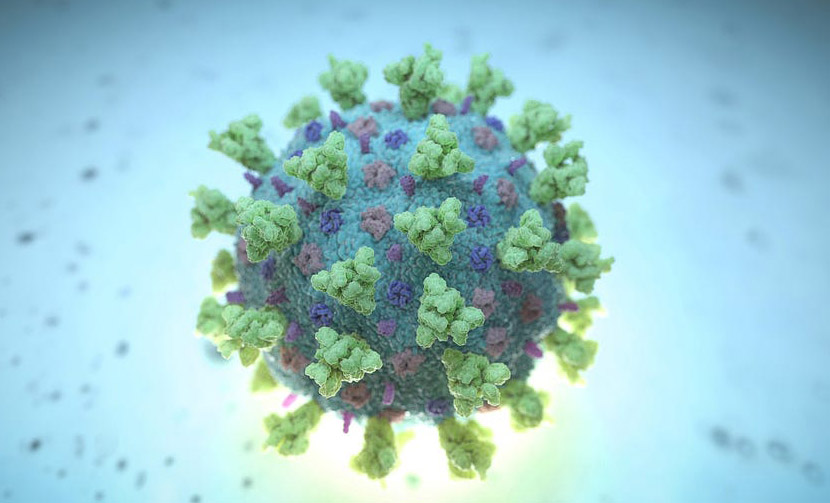BREAKING NEWS! Study Shows That Even Strong T Cell Response Against SARS-CoV-2 Has No Effects In Terms Of Recovery From Severe COVID-19
Source: COVID-19 T Cells Sep 01, 2020 5 years, 4 months, 4 weeks, 8 hours, 30 minutes ago
Even a strong
T Cell response against the spike, membrane, and nucleocapsid SARS-CoV-2 proteins is not associated with recovery in critical COVID-19 patients according to a new study by German researchers from Marien Hospital and the department of Virology of Ruhr-Universität Bochum (RUB) as well as the Clinic for Infectious Diseases, the Clinic of Anesthesiology and the Institute for Virology of University Medicine Essen.

The study results are published in the journal: Cell Reports Medicine.
https://www.sciencedirect.com/science/article/pii/S266637912030118X
The team studied specific antibodies and T cells occurring in recovered, seriously ill and deceased COVID-19 patients. The study team identified comparable immune reactions in clinical follow up.
It si commonly known that T lymphocytes and antibodies and are among the most important elements of the immune defense against viruses.
Typically, the antibodies prevent viruses from entering the host cell by binding to certain virus receptors. They also mark the infected cells for other players in the immune system, which are able to kill the infected cells. Virus-specific T lymphocytes, on the other hand, can kill infected cells directly and highly efficiently.
In the last few weeks certain studies have been published on the analysis of these cell-killing SARS-Cov-2 specific T cells in patients with COVID-19. The studies demonstrated detection of such cells in patients recovered from COVID-19 suggesting their protective antiviral effect.
However on the other hand, some research indicates that an excessive immune response might be the cause of severe COVID-19. The role of SARS-Cov-2 specific T-cells in this exaggerated immune response is unclear.
In the study it was found that critically ill patients have the same or stronger immunity as recovered patients.
The study team analyzed immune responses in COVID-19 patients during the disease progress.
Dr Nina Babel, who headed the research, told Thailand Medical News, "This is how we wanted to investigate the role of T cells and antibodies in controlling the infection and the disease. The novel aspect of our study is that we analyzed SARS-Cov-2 specific T-cells and antibodies in relation to disease progression and viral clearance. We found that a strong T-cell and antibody response could be detected not only in patients with mild COVID-19 patients who had recovered from the virus infection."
Interestingly similar or even stronger immunity to SARS-Cov-2 was found in patients who had been critically ill and who suffered COVID-19-related lung failure.
Dr Ulrik Stervbo, head of laboratory at the Centre for Translational Medicine further added, "The total number of specific immune cells as well as their functionality was not better in patients who survived COVID-19 than in those who died from it."
Significantly there was also no difference in the strength and functionality of the immune response between patients who still suffered from and those who had cleare
d a SARS-Cov-2 infection.
The research data provide a comprehensive characterization of the T cell response against S-, M- and N- SARS-CoV-2 proteins in patients with different COVID-19 severity and unexposed donors.
The reactivity demonstrates individual pattern, indicating that all three proteins should be considered in cellular monitoring to avoid underestimation, especially in the early phase of disease.
The findings suggest potential targets of humoral immunity. Considering the role of CD4+ T helper cells for antibody generation and the higher CD4+ T cell response against M-protein, our results highlight the M-protein as an additional target for antibody monitoring and vaccine development.
The findings are also in line with other research demonstrating immunogenic property of certain M- and N-related immunodominant peptides in COVID-19 convalescent patients.
The findings showed dominance of CD4+ T cell responses over CD8+ T cell responses. CD8+ T cell frequencies were substantially lower in this study. The study team could detect a CD8+ T cell response in 75% of the COVID-19 patients, and in 30% of the unexposed donors.
Dr Babel stressed, "Even though further studies will be necessary to understand the specific mechanism of COVID-19 development, our data suggest that excessive SARS-Cov-2-specific T cell response can cause immunopathogenesis leading to COVID-19-related lung failure.”
Professor Timm Westhoff, Director of Medical Clinic I at Marien Hospital Herne-Germany said, “The results of current studies on the successful application of immunosuppressive therapies in COVID-19 support this hypothesis."
For more about
COVID-19 T Cells, keep on logging to Thailand Medical News.
